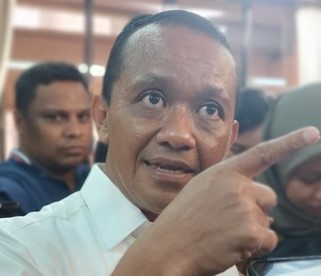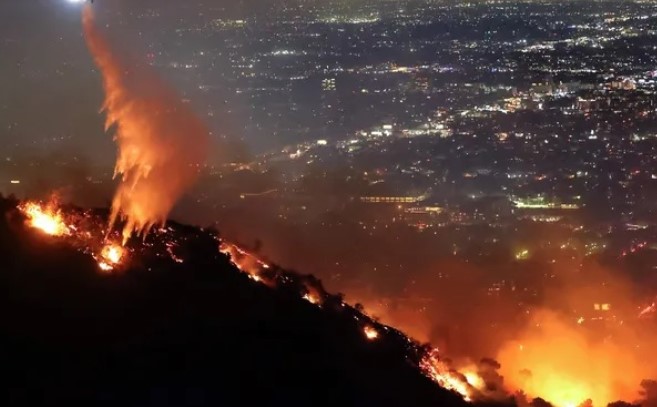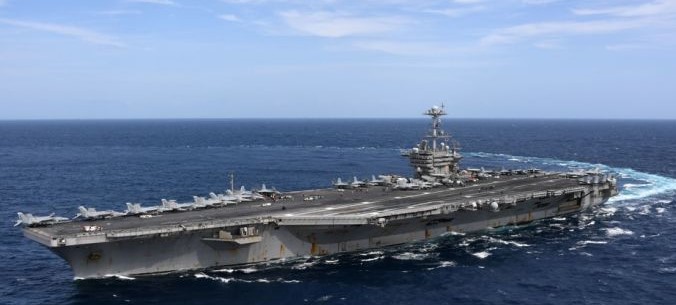
Bahlil Lahadalia
Indonesia is the world’s largest producer of nickel, a metal used in a huge range of products such as stainless steel, mobile phones and electric car batteries. There is an expected increase in the use of nickel as the world shifts to greener transportation. But conservationists are warning that nickel mining is having a devastating environmental impact.
Australia has pledged $50 million in climate funding to support small and medium enterprises (SMEs) and startups in Indonesia as part of the Australia-Indonesia climate and infrastructure partnership. The announcement was made during President Joko Widodo’s visit to Sydney, highlighting the commitment to collaboration between the two countries in addressing climate change challenges and promoting sustainable development. Australian Prime Minister Anthony Albanese emphasized the potential for joint efforts in the global transition to clean technologies and renewable energy sources. Australia’s expertise in renewable energy and abundant reserves of critical minerals position the country as a valuable partner for Indonesia’s energy transition. President Widodo echoed this sentiment, emphasizing the need for bilateral cooperation in reducing carbon emissions and developing carbon capture and storage (CCS) technologies, as well as constructing green energy-oriented smelters.
Responding to the International Monetary Fund’s (IMF) recommendation for Indonesia to lift the export ban on raw minerals, including nickel, Trade Minister Zulkifli Hasan on Thursday said the export ban is crucial to Indonesia’s resource-based industrial plan. However, Zulkifli refrained from explaining the government’s move to respond to the IMF’s recommendation. Zulkilfi argued that the export ban on nickel is an appropriate policy by President Jokowi since it will greatly benefit Indonesians.
As Indonesia considers introducing fines for nickel firms that are allegedly illegally exporting raw nickel to China despite Jakarta’s blanket ban on such trade, experts say officials should study the underlying causes for producers’ action instead of focusing on punitive measures.
While processed nickel exports are still legal, Jakarta imposed a ban on exporting nickel ore in January 2020 as part of a value-added strategy to generate more revenue from raw materials by requiring miners and producers to build refining facilities onshore.
The Indonesian Trade Ministry is currently finalizing permits for Freeport’s copper concentrate export. Trade Ministry Director General Budi Santoso said a technical recommendation letter from the Energy and Mineral Resources Ministry has arrived at the ministry. Budi said that the ministry is currently processing the amendment to Trade Ministry Regulation No.19/2021 concerning export policy and regulation.
Indonesian mining company Amman Mineral Internasional (AMMN) opened its debut trading session at the Indonesia Stock Exchange on a high note, making it the biggest IPO so far this year. The company accumulated USD 709 million from its initial public offering from July 3 to July 5, 2023. Amman President Alexander Ramlie said that the company’s IPO is intended to support business development and accelerate its copper cathode smelter project. “Worldwide copper demand will continue to rise,” he said.
Indonesia is already the world’s biggest producer of nickel, a metal that is — among other uses — vital for building high-performance batteries. Demand for those is expected to increase hugely as demand for electric cars ramps up. Helped by new technologies for extracting nickel from the soil, Indonesia is planning big production increases. Macquarie Group, an Australian financial firm, thinks that by 2025 the country could supply 60 percent of the world’s nickel, up from around half today.
Minister of Trade Zulkifli Hasan responded to IMF’s recommendation for Indonesia to lift the export ban on raw minerals, including nickel. According to the minister, the export ban is crucial to Indonesia’s resource-based industrial plan. “IMF and developed countries lament the decision. We are trying to advance the state, why are they the ones lamenting,” said Zulkifli in his office in Central Jakarta.
Center of Energy and Resources Indonesia (CERI) Executive Director Yusri Usman believes that the International Monetary Fund’s (IMF) pressure on Indonesia to loosen its nickel ore export ban policy without extending it to other raw mineral commodities is motivated by a strong donor interest. It is believed that developed-nation donors like those from the United States, United Kingdom, Canada, Germany, France, and Japan used the IMF to influence Indonesia to lift the export ban on nickel ore for their own benefit.
The government has said it will seek to counter policies from the United States and European Union meant to encourage the domestic processing of minerals crucial for the electric vehicle (EV) industry, which Jakarta says could threaten the development of its own downstream metals industry.
In the EV supply chain, the government aims to export nickel only if it has been processed into cathode, an intermediate product a few steps from becoming part of a battery, Investment Minister Bahlil Lahadalia said, adding that the final manufacturing steps could be done at the export destination. “Under such a situation, Indonesia will make a counterattack,” Bahlil said of the U.S. and EU mineral policies. “We can’t be tricked. It must be fair,” he added.
Experts believe a disparity between global and domestic prices is what motivated some exporters to flout the country’s nickel export ban by selling to China, and they want the government to make policy changes to address the gap. Experts say the alleged violation of the export ban puts the impetus on the government to resolve the price disparity between the domestic and export market and to strength supervision. Mirae Asset analyst Rizkia “Darma” Darmawan told that shipping the ore abroad was “more profitable” than selling it at home given the price gap.
Investment Minister and Indonesian Investment Coordinating Board (BKPM) Chair Bahlil Lahadalia asked the International Monetary Fund (IMF) to not interfere with Indonesia’s policies on downstreaming and banning commodity exports. Bahlil said the Indonesian government appreciates the IMF sharing its views and recommendations regarding macroeconomic growth in the country, however, the IMF can be said to be applying a double standard, since, on the one hand, it is supporting downstreaming goals, but on the other, it is opposing the export ban.
The Indonesian government has yet to receive certainty regarding a limited free trade agreement (FTA) with the United States and the European Union to secure credit access for critical mineral raw materials for Indonesian electric vehicle (EV) batteries in these two global largest EV markets. Investment Minister/Investment Coordinating Board (BKPM) Chair Bahlil Lahadalia in a press conference on Friday said the negotiations regarding the limited FTA facility are still ongoing.
Bahlil said the government has prepared trade strategies to overcome policies that can be considered discriminatory for Indonesia’s critical minerals. Bahlil said Indonesia is preparing a “counterattack” or strategies where locally made EV ecosystem products will not be shipped in finished/ready-to-use products to the United States, but 60-to-70-percent processed products or semi-finished materials.
Investment Minister Bahlil Lahadalia on Friday gave the latest updates on Indonesia’s proposal for a global nickel cartel, saying that it has had intense talks with some unnamed countries. “There are three countries with whom we have already been intensely communicating with,” Bahlil told reporters in Jakarta commenting on the progress of the Organization of the Petroleum Exporting Countries (OPEC)-style nickel group. The minister, however, refused to disclose the name of the said countries. When asked about their initial response to the plan, Bahlil said: “[they thought] it was a great idea, but we still need to work on the details of the proposal.”
President Joko Widodo (Jokowi) has informed that the government will make a decision this month regarding its plan to push the nickel mining company PT Vale Indonesia (INCO) to divest more its shares. The discourse on divestment came because the company’s operational period and contract will expire on December 28, 2025.
“God willing, we will soon decide on that matter this month. Most importantly, we should prioritize national interests,” Jokowi told reporters at Halim Perdanakusuma International Airport in Jakarta. A decision on the divestment will be reached in the interest of national interests and will be in line with the government’s downstreaming and industrialization plans, he stated. He affirmed that the government has been looking for ways to become the majority stakeholder with 51 percent of INCO’s shares without harming investors.
Investment Minister/Investment Coordinating Board (BKPM) Chair Bahlil Lahadalia said the government asked PT Freeport Indonesia to build a concentrate smelter or metal mineral refining and processing plant in Papua. Bahlil said the request for the construction of the smelter was related to the extension of the special mining business license (IUPK), in addition to the requirement to give 10 percent of Freeport’s shares to the state-owned mining holding company MIND ID.
PT Freeport Indonesia (PTFI) confirmed that it is ready to build a smelter or copper refining facility in Papua after receiving an extension of the special mining business permit which expires in 2041. PTFI Corporate Communication Vice President Katri Krisnati said the company would comply with the government’s contract extension provisions, in which the government requested that PTFI divest an additional 10 percent stake to Indonesia and build a smelter in Papua.





